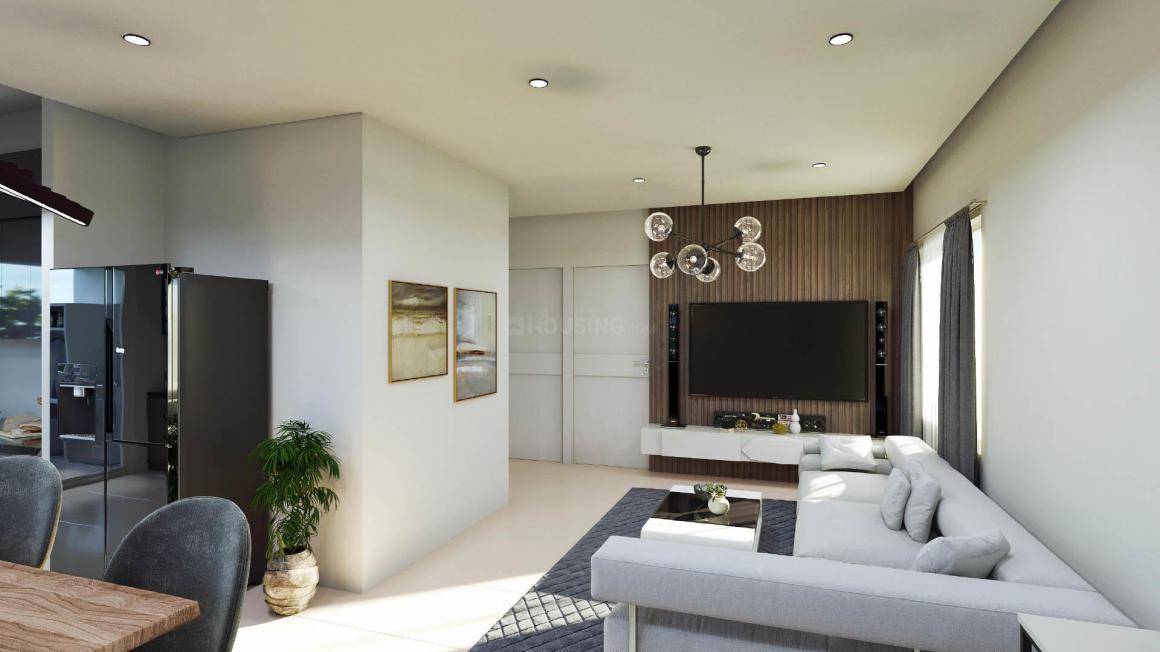The Maharashtra Apartment Ownership Act 1970 governs apartment ownership and management in Maharashtra, India. This legislation addressed the rising apartment living trend and provided a legal foundation for apartment complex administration. The statute requires the creation of a cooperative society or group of unit owners to maintain, repair, and manage common spaces and amenities in the complex. Residents feel more connected when common areas and facilities are managed collectively.
Read: Understanding a Coparcener and Property Rights in a Hindu Undivided Family

Things we covered for you
The statute also governs unit ownership transfers and disputes between residents or the organisation and individual owners. Also, the Maharashtra Apartment Ownership Act of 1970 regulates apartment complex connections and affairs, fostering orderly growth and peaceful living. Let’s learn more about this act and its benefits.
Application of Maharashtra Apartment Ownership Act 1970
All Maharashtra apartment buildings and complexes are covered under the 1970 Maharashtra Apartment Ownership Act. It covers apartment ownership, management, and government in such complexes.
Some significant places where the Maharashtra apartment ownership rules applies:
- Apartment Owners groups: The legislation governs the creation and operation of groups or societies of apartment owners within a complex. It describes how to form these organisations and their duties.
- Ownership Rights and Responsibilities: The statute defines individual unit owners’ rights and responsibilities within a complex. It establishes the ownership structure, including common spaces, amenities, and unit borders.
- Management and upkeep: The legislation governs common area and facility upkeep in residential complexes. It distributes maintenance costs and manages common facilities fairly.
- Transfer and Inheritance of Ownership: The statute governs apartment ownership rights and property interest transfers. It covers inheritance and ownership succession.
- Dispute Resolution: The statute addresses problems between apartment owners, the association, or the interpretation and implementation of the act.
The 1970 Maharashtra Apartment Ownership Act covers all areas of apartment ownership and administration in the state to promote orderly government and harmonious living in apartment complexes.
Removing Property From The Act’s Regulation
Removing a property from the Maharashtra Apartment Ownership Laws 1970 requires a legal procedure and compliance with the laws. A summary of possible methods:
- Review the Act: Read the Maharashtra Apartment Ownership Act of 1970 to learn how to remove a property from its regulation. Check for relevant provisions.
- Consult with property law specialists to discuss removing the property from the act’s regulation. They can explain the processes and verify legal compliance.
- Get clearance from the association or management committee if the property is in an apartment complex administered by an association or society. This may include meetings and consensus or following the association’s bylaws.
- Prepare legal papers to establish the property removal from the act’s regulation. As needed by the statute and apartment association rules in Mumbai, this may entail authoring resolutions, agreements, or governing document revisions.
- Filing with Authorities: Submit needed paperwork to authorities as per legislation. Depending on the property and regulatory requirements, this may include filing with government authorities registering property or cooperative associations.
- Compliance: Meet legal and procedural conditions for property removal from the act’s regulation. This may involve paying fees, meeting deadlines, and following government rules.
- After completing the removal procedure, inform all impacted parties, such as association members, renters, and stakeholders, of the change in regulatory status.
To lawfully remove the property from the Maharashtra Apartment Ownership Act of 1970, complete the legal processes and get professional counsel.
Share of Property Owned By The Owner
According to the Maharashtra Apartment Ownership Act 1970, each owner’s share of property in an apartment complex is usually based on the size of their apartment unit compared to the total area of all units. This ownership share gives the owner rights and obligations in the complex’s organisation or society.
Here’s how owners’ property shares are usually determined:
- Ownership share often depends on the size or area of the apartment unit held by the owner. Ownership shares are more outstanding for larger units and lower for smaller ones.
- To determine ownership share, use a percentage of the total area of all units in the apartment complex. Owners generally have a 10% ownership share if their unit is 10% of the complex’s total space.
- Ownership shares grant rights and duties within the apartment owners’ group or society. Examples include voting rights at association meetings, proportional representation in decision-making, and ownership-based maintenance contributions.
- The ownership portion is established in title deeds and other legal documents linked with the property. These papers determine apartment complex rights, duties, and liabilities by owner proportion.
Owners must comprehend their ownership share and its consequences for governance, decision-making, and financial duties under the Maharashtra Apartment Ownership Act of 1970-governed apartment complex.
Maharashtra Apartment-Flat Ownership,1963 And Maharashtra Apartment Ownership Act, 1970: A Comparison
It is necessary to distinguish between the historical context, scope, provisions, and objectives of the Maharashtra Apartment Flat Ownership Act 1963, and the 1970 Act.
1. History
The 1963 Maharashtra Apartment-Flat Ownership Act
• The Maharashtra Apartment Flat Ownership Act of 1970 was an early Indian law governing apartment flat ownership and administration.
- The law was designed to address the rise of apartment living and provide a legal framework for flat ownership in multi-unit residential complexes.
The Maharashtra Ownership of Flats Act was adopted with the rise of apartment living, especially in metropolitan areas, highlighting the need for precise restrictions on individual flat owners’ rights and obligations.
The 1970 Maharashtra Apartment Ownership Act
• The Maharashtra Apartment Ownership Statute, 1970, updated and replaced the 1963 statute.
• The act updated and modernised apartment ownership and governance, addressing evolving needs and complexities.
• The act introduced a more robust legal framework for apartment complex ownership, management, and administration, addressing various issues.
2. Extent and Conditions
The 1963 Maharashtra Apartment-Flat Ownership Act
• primarily addressed individual flat ownership in multi-storeyed structures.
• The act established regulations for flat ownership, including property division, common areas, and facilities.
• It also outlined the rights and responsibilities of flat owners and procedures for forming cooperative societies or associations to manage common areas and facilities.
The 1970 Maharashtra Apartment Ownership Act
• The 1970 statute broadened ownership and control of apartment complexes beyond individual flats.
• The act established and regulated apartment owners’ associations or societies to manage common areas, facilities, and services.
• The act covered apartment ownership and management, including clear title, standard area maintenance, dispute resolution, and ownership rights transfer.
3. Goals and Plan
The 1963 Maharashtra Apartment-Flat Ownership Act
The primary goal of the 1963 act was to legalise and protect flat owners in multi-storeyed buildings. It also regulated the division and use of common areas and facilities to ensure equitable access and maintenance.
The Maharashtra Apartment Ownership Act, 1970
aimed to modernise and strengthen the legal framework for apartment ownership and governance in Maharashtra. It addressed challenges such as collective decision-making, maintenance, and dispute resolution and promoted orderly development, efficient management, and harmonious living within apartment complexes.
4. Impact, evolution
The 1963 Maharashtra Apartment-Flat Ownership Act
•The 1963 act was a crucial step towards recognising and regulating apartment ownership in Maharashtra, although its reach was restricted compared to subsequent laws.
The 1970 Maharashtra Apartment Ownership Act
• The 1970 legislation changed the legal framework for apartment ownership and management in Maharashtra, providing new laws to address the complexity of urban apartment complex administration. The statute set the standard for apartment complex construction and regulation in Maharashtra for decades.
In conclusion, the Maharashtra Apartment Flat Ownership Act 1970 regulated apartment ownership in Maharashtra, although they had different scopes, regulations, and goals. The 1963 statute addressed individual flat ownership in multi-story buildings, whereas the 1970 act covered apartment complex government and management. The 1970 statute was more comprehensive and updated, reflecting urban apartment living’s changing requirements and problems. These laws established the legal basis for apartment ownership and administration in Maharashtra, ensuring orderly growth and peaceful living in apartment complexes.
Learn More About Real Estate Laws With NoBroker
It might be difficult to navigate India’s complicated real estate legal system, but with the correct assistance, it becomes easier. It’s important to emphasise the value of expert advice as we wrap up our examination of the most important real estate regulations, and NoBroker’s legal specialists excel in this regard. It’s a smart move to get in touch with NoBroker’s legal specialists for tailored guidance and support. NoBroker is a source of support for all real estate transactions, whether you’re buying, selling, or renting; it makes the process easier to grasp and available to everybody.

Frequently Asked Questions
The Maharashtra Apartment Ownership Act of 1970 governs the ownership and management of apartment complexes in Maharashtra, India. It applies to all apartment buildings and complexes within Maharashtra, including residential, commercial, and mixed-use developments.
Some key provisions of the act include guidelines for the formation of apartment owners’ associations or societies, delineation of individual ownership rights within apartment complexes, regulations for the management and maintenance of common areas and facilities, procedures for the transfer and inheritance of apartment ownership, and mechanisms for resolving disputes among residents or between the association and individual owners.
The act grants individual apartment owners certain rights, such as the right to participate in the affairs of the apartment owners’ association or society, the right to use common areas and facilities, and the right to transfer or inherit ownership of their apartment unit. Additionally, apartment owners are obligated to comply with the rules and regulations established by the association and contribute to the apartment complex’s maintenance expenses.
Apartment owners’ associations or societies play a central role in the governance and management of apartment complexes under the act. They are responsible for overseeing the administration, maintenance, and upkeep of common areas and facilities, collecting maintenance charges from individual owners, resolving disputes among residents, and representing the collective interests of apartment owners.
The act provides mechanisms for resolving disputes that may arise among apartment owners, between owners and the association, or concerning the interpretation and enforcement of the act itself. Disputes may be resolved through negotiation, mediation, or arbitration and, in some cases, may be adjudicated by the appropriate legal authorities.









